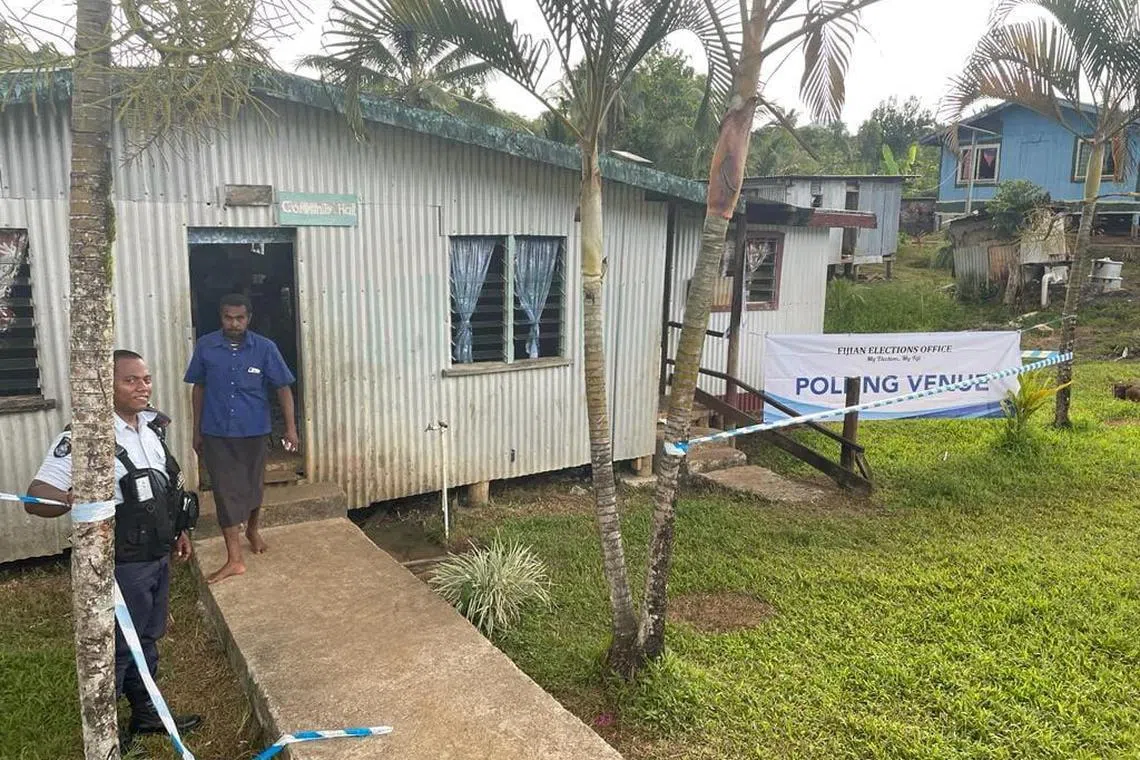Fiji in media blackout ahead of national election on Wednesday
Sign up now: Get ST's newsletters delivered to your inbox

People standing outisde a pollng venue before the general election, in Namara, Fiji, on Dec 7, 2022.
PHOTO: REUTERS
SYDNEY - Fiji, a Pacific Island nation pivotal to the region’s response to strategic competition between China and the United States, will hold a national election on Wednesday, the third since its leader came to power in a coup in 2006.
Under Fijian election laws, a media blackout on campaign coverage was imposed on Monday until polling booths close at 6pm on Wednesday. It requires political parties to remove banners, posters and flags from public display.
A Pacific trade and transport hub with a population of 900,000, including a sizeable Indian ethnic group, Fiji had a history of military coups until the Constitution was changed in 2013 to remove a race-based electoral system.
Its military chief, Major-General Ro Jone Kalouniwai, told officers in a public speech in December to “honour the democratic process by respecting the outcome of the voting”, easing fears the closely contested national election could lead to another coup.
A multinational observer group led by Australia, India and Indonesia will see about 90 election observers monitor polling booths and the national vote counting centre.
Prime Minister Frank Bainimarama, who came to power in a 2006 coup, won democratic elections in 2014 and 2018. He has a high international profile for climate change advocacy and has been chairman of the Pacific Islands Forum, the regional diplomatic bloc, as it sought this year to manage rising security tensions between the US and China.
Fiji hosted a meeting between US Secretary of State Anthony Blinken and the region’s leaders in February,
Fiji strengthened its security ties with Australia, Solomon Islands signed a security pact with China in April.
Before the Covid-19 pandemic, China had been a significant donor of equipment to Fiji’s military.
Dr Stewart Firth, a research fellow at the Australian National University who has written books on Fiji’s coups and Pacific politics, said this election would be a “tight race”. Mr Bainimarama had won support from the Indian community since 2013 because he abolished the race-based electoral system, he said.
The main challenge to Mr Bainimarama this election is expected to come from another former coup leader and prime minister, Mr Sitiveni Rabuka, whose People’s Alliance Party has formed a coalition with Fiji’s oldest political party, the National Federation Party. The party attracts a strong multiracial vote, Dr Firth said.
A report by international observers on the conduct of the 2018 election said it was “transparent and credible”, while noting concern over self-censorship by media.
The Multinational Observer Group’s 2018 report recommended that laws be reviewed, so media could “confidently play their vital role” to scrutinise the performance of government and opposition. REUTERS


